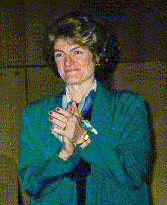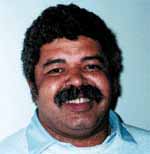
|
The Mathematical Association of America Maryland-District of Columbia-Virginia Section |
- Home
- History
- Main History Page
- Section History Document
- List of Past Officers
- Charter Members
- African-American Participation
- Stories from Section Members
- Section NExT Fellows
- Obituaries
- Smith Award Recipients
- Christensen Award Recipients
- Meritorious Service Award Recipients
- Undergraduate Award Winners
- Meeting Archive
- Past Meetings
- Talk Archive
- Old Section NExT Programs
- Newsletter Archive
- Meeting Minutes Archive
- Miscellaneous Documents
- Meetings
- Minutes
- Fall 2024 Executive
- Fall 2024 Membership
- Spring 2024 Executive
- Spring 2024 Membership
- Fall 2023 Executive
- Fall 2023 Membership
- Spring 2023 Executive
- Spring 2023 Membership
- Fall 2022 Executive
- Fall 2022 Membership
- Spring 2022 Executive
- Spring 2022 Membership
- Fall 2021 Executive
- Fall 2021 Membership
- Spring 2021 Executive
- Spring 2021 Membership
- Fall 2020 Executive
- Fall 2020 Membership
- Fall 2019 Executive
- Fall 2019 Membership
- Spring 2019 Executive
- Spring 2019 Membership
- Fall 2018 Executive
- Fall 2018 Membership
- Spring 2018 Executive
- Spring 2018 Membership
- Fall 2017 Executive
- Fall 2017 Membership
- Spring 2017 Executive
- Spring 2017 Membership
- Minutes Archive
- Newsletters
- Section NExT
- Awards
- Students
- Links
- Search
Fall 1998 Meeting at Towson University
The fall meeting of the MD/DC/VA Section of the MAA was held on November 13 and 14 at Towson University, Towson, MD. Invited AddressesDr. John J. BenedettoUniversity of Maryland - College ParkInvited Address: Wavelets and Applications Abstract: Dr. Benedetto's lecture on Wavelets and Applications will define wavelets and describe their role and relevance in certain areas of the mathematical sciences. He will show how wavelets sometimes play a role in noise reduction, seizure prediction, and speech coding - and sometimes do not! Biographical Sketch: Dr. Benedetto is an harmonic analyst. He has published numerous papers and books on topics including wavelet and frame theory; spectral analysis, estimation, and synthesis; and the uncertainty principle, speech compression, and noise reduction. He has had 20 Ph.D. students, is Editor-in-Chief of the Journal of Fourier Analysis and Applications, and is the Series Editor of Birkhauser's Applied and Numerical Harmonic Analysis series. J. Kevin ColliganNational Security AgencyInvited Address: Webs, Sieves, and Money: Number Theory's Rubber Hits the I-way Road Abstract: The Internet is not only changing the way that people communicate; it is also changing some aspects of commerce, and promises to have an even larger impact in the future. It may in fact be a fundamental communications paradigm shift, not unlike what happened when mass-market print media and telephones were introduced. Particularly in the commercial arena, availability of the communications medium has preceded development of easily-used tools to manipulate it. Further, legal and physical protections that people take for granted in other communications and commercial media are not yet commonly available for computer-to-computer electronic communications, especially over the Internet. Number theory may have a direct impact on development of these latter protections. This talk will give examples of ways that the Internet is beginning to open up to commercial interests, and indicate how number theory--in particular, the integer factoring problem--may provide some protection particularly germane to these interests. The talk will accent the relevant number theoretic topics, and will suggest a few areas ripe for further mathematical exploration. Biographical Sketch: J. Kevin Colligan is a Senior Cryptologic Mathematician at the National Security Agency, where he has been since 1972. He has been active in the affairs of the MAA both at the national level and within the section where he is the immediate past Governor. Colligan is a captivating speaker, and was Pi Mu Epsilon's 1996 J. Sutherland Frame Lecturer at the national summer math meetings in Seattle. He will present a special lecture directed at students on connections between number theory and security issues on the internet. 
Dr. Virginia StallingsAmerican UniversityInvited Address: Portfolio and Rubric Assessment in Mathematics Classes Abstract: This workshop will present new alternatives to grading. Participants will learn about portfolios and rubric grading techniques that have been used successfully in undergraduate and graduate classes. Effective student self-assessment will be discussed. Participants will have an opportunity to develop a rubric and practice grading papers. The workshop will culminate with a discussion on how to effectively incorporate portfolios, rubric grading and student self-assessment in evaluating performance. Biographical Sketch: Dr. Stallings is the Chair of the Department of Mathematics and Statistics at American University, and the recipient of the MD/DC/VA Section's 1998 Distinguished Teaching Award. She has played a key role in American's doctoral program in Mathematics Education, her field of specialty. At the same time, she remains actively involved with mathematics school teachers. Particular areas of interest include alternative assessment and educational technology. 
Dr. James WhiteEditor, Mathwright LibraryInvited Address: 3-Dimensional Graphics and Geometry on the Desktop Abstract: This talk will discuss with examples a new role for 3D graphics in the support of visualization. It describes Mathwright MindScapes, a new authoring environment that teachers may use to build simulations in geometry and physics. It will also, in an admittedly speculative way, propose some entirely new pedagogical uses for 3D graphics in mathematics. Workshop: The New Mathwright Library Abstract: The workshop will describe a variety of contributions by teachers to the Mathwright Library, a free library of interactive mathematical texts on the web. It will also discuss ways in which the Library may provide resources to teachers to support their own web based courses, and to support a broad form of collaboration on the development and sharing of interactive materials. Biographical Sketch: Dr. White is the creator of Mathwright, a powerful authoring tool with which mathematics teachers can create interactive computer environments for their students. He was co-director of the MAA's highly successful Interactive Mathematics Text Project, and has created an internet library of MATHWRIGHT activities freely available to teachers and students everywhere. His current activities focus on harnessing the full power of computer visualization technology in a new software tool called Mindscapes, for use in instructional settings. Today, graphical images can be rendered with such convincing realism that they are virtually indistinguishable from physical objects. As with Dr. White's past projects, Mindscapes will empower teachers and students to create and explore these graphical objects, in an integrated setting that provides a full range of numerical and symbolic capabilities. |
Copyright © 2012 - The Mathematical Association of America
Please send comments, suggestions, or corrections for this page to Brian Heinold at heinold@msmary.edu
Last Modified: 03/05/2012 - 09:16pm